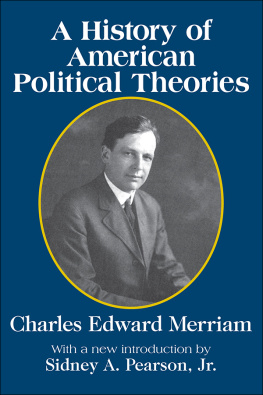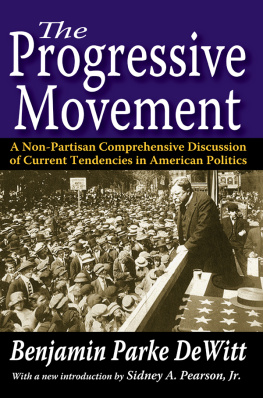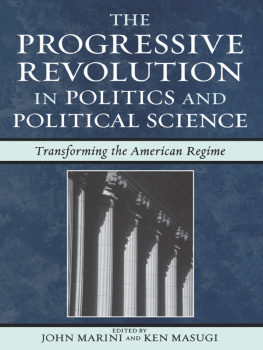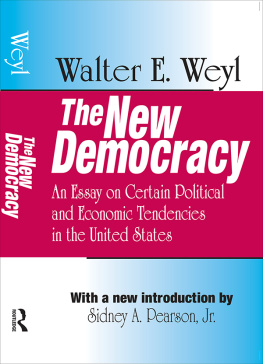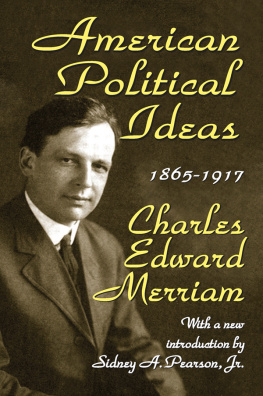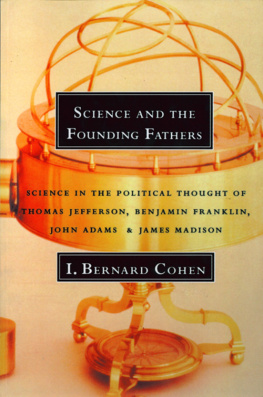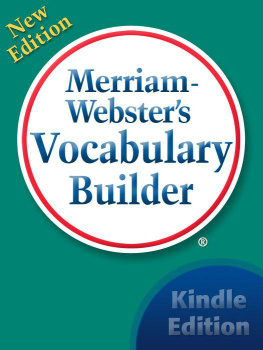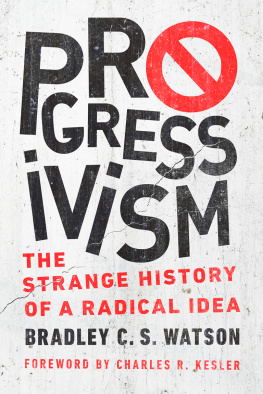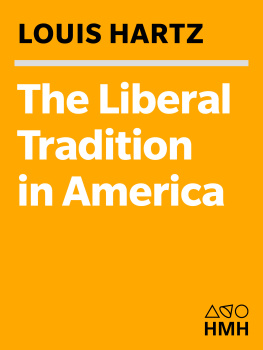Charles Edward Merriam - A History of American Political Theories
Here you can read online Charles Edward Merriam - A History of American Political Theories full text of the book (entire story) in english for free. Download pdf and epub, get meaning, cover and reviews about this ebook. year: 2008, publisher: Transaction Publishers, genre: Politics. Description of the work, (preface) as well as reviews are available. Best literature library LitArk.com created for fans of good reading and offers a wide selection of genres:
Romance novel
Science fiction
Adventure
Detective
Science
History
Home and family
Prose
Art
Politics
Computer
Non-fiction
Religion
Business
Children
Humor
Choose a favorite category and find really read worthwhile books. Enjoy immersion in the world of imagination, feel the emotions of the characters or learn something new for yourself, make an fascinating discovery.
- Book:A History of American Political Theories
- Author:
- Publisher:Transaction Publishers
- Genre:
- Year:2008
- Rating:5 / 5
- Favourites:Add to favourites
- Your mark:
A History of American Political Theories: summary, description and annotation
We offer to read an annotation, description, summary or preface (depends on what the author of the book "A History of American Political Theories" wrote himself). If you haven't found the necessary information about the book — write in the comments, we will try to find it.
A History of American Political Theory is a comprehensive attempt to understand the full sweep of American political thought since the founding. Working within the liberal-progressive tradition, Merriam reviewed American political history in its entirety, from the founding down to his own day. He was not out to reduce political thought to a single element such as economics alone; his aim was to encompass the whole of modem social science.
The political science of the liberal-progressive tradition has roots and assumptions that were born in this period and nurtured by scholars such as Merriam. The progressive tradition in general and Merriam in particular interpreted the rise of a new science of politics that would be required for the liberal-progressive world view he represented. His work stands at a momentous fork in the road; two great traditions of how American democracy should be understood, interpreted, and analyzed parted company and afterward each went their separate ways. These traditions are represented, respectively, by the founders and the liberal-progressives. There was much at stake in these academic debates, though the consequences were not entirely foreseen at the time.
An overview of the authors, works, and general source material covered in History of American Political Theories is impressive. Merriam viewed the study of American democracy as an eclectic activity embracing the broadest definition of the social sciences, with particular emphasis on psychology. Such a transformation required that the social sciences be grouped as a whole rather than fragmented into separate and distinct academic departments.
Charles Merriam (1874-1953) was professor of political science at the University of Chicago. He served on the Research Committee on Social Trends under President Hebert Hoover and on the National Resources Planning Board under President Franklin D. Roosevelt. He is known as the father of the behavioral movement in political science and believed that theories of political process needed to be linked to practical political activity.
Sidney A. Pearson, Jr. is professor emeritus of political science at Radford University. He is the series editor of Library of Liberal Thought at Transaction Publishers. In addition, he also wrote new introductions for Presidential Leadership, The New Democracy, and Party Government, all available from Transaction.
Charles Edward Merriam: author's other books
Who wrote A History of American Political Theories? Find out the surname, the name of the author of the book and a list of all author's works by series.

